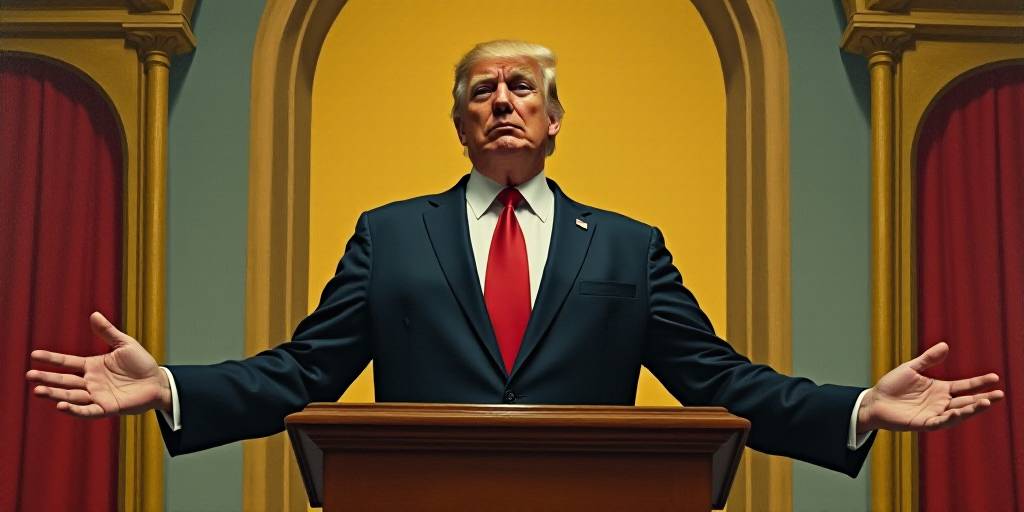Background on Donald Trump and His Relevance
Donald John Trump, born on June 14, 1946, is a prominent American businessman, television personality, and politician who served as the 45th president of the United States from January 20, 2017, to January 20, 2021. Before his presidency, Trump gained fame through his real estate ventures and the reality TV show “The Apprentice.” His political career began with a presidential campaign that emphasized America-first policies, immigration restrictions, and deregulation.
Trump’s Proclamation of May 8th as “Victory in Europe Day”
On May 7, 2020, during his ongoing presidency, Donald Trump issued a proclamation declaring May 8th as “Victory in Europe Day” to commemorate the 75th anniversary of Nazi Germany’s unconditional surrender to the Allies, effectively ending World War II in Europe. This proclamation came amidst the global COVID-19 pandemic, which had already altered daily life in the United States and worldwide.
Trump’s Statement on the Proclamation
In a press conference at the White House shortly after issuing the proclamation, Trump stated, “The victory was largely achieved because of us, whether you like it or not.” This comment sparked controversy and debate regarding the role of the United States in World War II compared to other Allied nations.
Context and Impact of Trump’s Proclamation
May 8th had already been recognized internationally as “Victory in Europe Day” since the end of World War II. The United Kingdom, Canada, Australia, and many other countries observe this day as a public holiday. The United States had traditionally celebrated “Victory in Europe Day” alongside “V-J Day” (Victory over Japan Day) on August 15th, acknowledging the end of World War II in the Pacific.
Trump’s decision to single out May 8th as a distinct “Victory in Europe Day” drew attention to the significant contributions of American forces during World War II. However, critics argued that it downplayed the sacrifices and efforts of other Allied nations, particularly those in Europe who bore the brunt of fighting on their home soil.
Reactions and Controversy
- Support: Supporters of Trump’s proclamation appreciated the recognition of American efforts in World War II and believed it highlighted the crucial role played by U.S. forces in defeating Nazi Germany.
- Criticism: Critics argued that Trump’s statement minimized the sacrifices of other Allied nations and ignored the historical context of World War II, which was a global conflict involving numerous countries.
Historical Context of World War II and Allied Efforts
World War II (1939-1945) was a global conflict that engaged over 30 countries and resulted in unprecedented loss of life and destruction. The Allied Powers, including the United States, the Soviet Union, the United Kingdom, and China, fought against the Axis Powers (primarily Germany, Italy, and Japan).
In Europe, the war saw intense fighting on the Western Front (D-Day invasion to the Battle of the Bulge) and the Eastern Front, where the Soviet Union bore the brunt of German aggression. The United States’ entry into the war in December 1941 marked a turning point, as American forces played a critical role in the eventual Allied victory.
Impact on Modern International Relations
Trump’s proclamation and subsequent statements have raised questions about the perception of American contributions in World War II and their implications for contemporary international relations.
Key Questions and Answers
- Q: Who is Donald Trump? A: Donald John Trump is a former American president, businessman, and television personality.
- Q: What is “Victory in Europe Day”? A: It commemorates the unconditional surrender of Nazi Germany to the Allies on May 8, 1945, marking the end of World War II in Europe.
- Q: Why did Trump issue this proclamation? A: Trump aimed to highlight the significant contributions of American forces in World War II.
- Q: What were the reactions to Trump’s proclamation? A: Supporters appreciated the recognition of American efforts, while critics argued it downplayed other Allied nations’ sacrifices.
- Q: How did World War II unfold in Europe? A: It was a global conflict involving numerous countries, with intense fighting on both the Western and Eastern Fronts.






